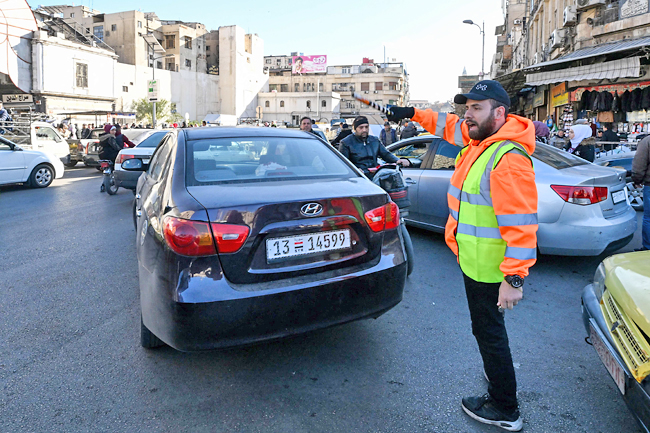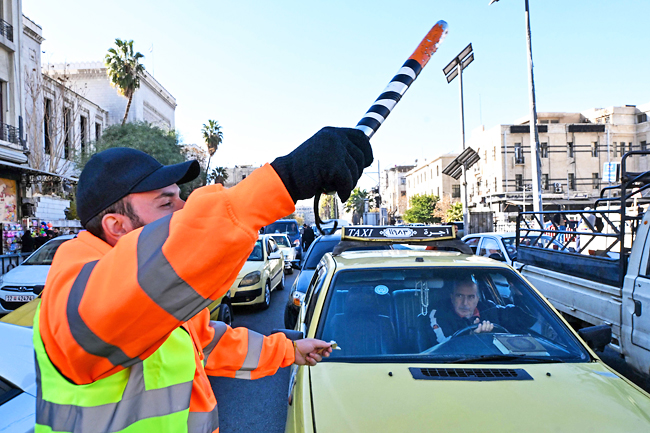DAMASCUS (AFP) – At a Damascus intersection, young volunteers act as unofficial traffic cops after police assigned to the duty deserted their posts when president Bashar al-Assad fell to a rapid rebel advance.
Some traffic officers abandoned their uniforms and motorbikes in the street on December 8, the day the rebels took Damascus.
Traffic jams resulted, especially where signals weren’t working or crowds gathered to mark the end to more than half a century of paranoid and brutal rule by the Assad clan.
A local organisation took action. It deployed more than 50 volunteers wearing orange vests labelled “Police”.
“We like our country and we wanted to contribute voluntarily to manage the traffic. The country is ours, when before it belonged to one person,” said Baraa Kardazli, 24, one of the volunteers.
They received some quick training under the supervision of the victorious Hayat Tahrir al-Sham rebels, who have experience running their bastion in Idlib, in Syria’s northwest.



HTS, which dominated the rebel coalition, gave them whistles and batons.
The volunteers, working from 9am until 6pm, were able to resolve much of the traffic problem in just two days, said Omar Merhi, one of the organisers.
Mohammed Mouaffaq al-Awa, signalling cars to stop or keep moving, is keeping up the effort near a park where the traffic lights haven’t worked for a week because of power cuts.
Further along, around a central square, children sell petrol directly to motorists.
Others wander among the traffic, waving the independence-era flag adopted by Syria’s new rulers.
In Damascus it is now routine to see recent-model cars, registered in Idlib or another northwestern region, Aleppo, which were partially controlled by the rebels and isolated from the capital.
They contrast with the largely dilapidated vehicles that proliferated during Assad’s 24-year rule because of exorbitant import taxes.
Awa, who has a degree in business management, said he never expected to be managing traffic flow.
But he can’t hide his joy.
“I am proud to contribute, even modestly, to help get the country back on its feet,” he said.
“It’s essential that we unite, whatever the extent of our contribution.”


